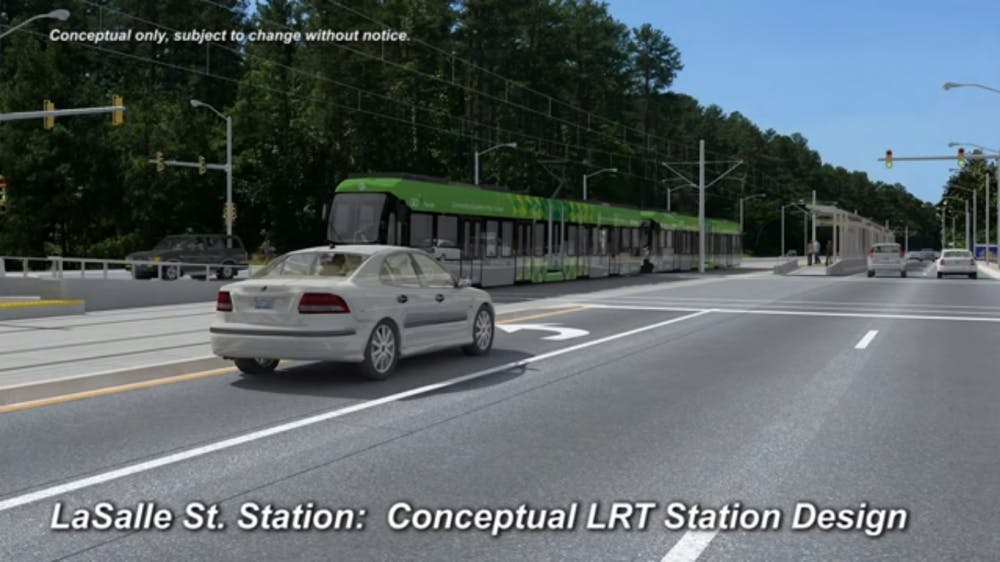A planned light rail connection between Durham and Orange counties has run into several complications in recent years, and Duke may have added another.
In a November letter to the project's planners, A. Eugene Washington, chancellor for health affairs and president and CEO of Duke University Health System, and Bill Fulkerson, executive vice president of DUHS, wrote that they "cannot support" the rail line's route as currently proposed in a letter to GoTriangle, the regional transit authority tasked with developing the project.
President Richard Brodhead wrote in a follow-up letter Dec. 2 that the University still supports the project and will work to resolve the concerns with GoTriangle.
Michael Schoenfeld, vice president for public affairs and government relations, confirmed the University's stance.
“Transportation in this region is one of the most critical issues that we are going to have to address in the next 20-50 years," he said. "Duke is and continues to be supportive of the light rail initiative."
The dispute centers around the placement of the light rail along Erwin Road near Duke Hospital.
Schoenfeld said that the light rail would pose both operational and safety problems for the hospital. Disruptions at street level could prevent easy access for emergency vehicles and create more traffic on Erwin Road, he explained. Hospital administrators also have concerns about the construction's impact on the hospital's power lines, a News and Observer article noted.
Jeffrey Sullivan, GoTriangle's public involvement associate, said there is an ongoing process to resolve the issues with Duke.
“Our work is a conversation and a process,” Sullivan said. “We are working with Duke to make sure that we come up with something that is acceptable to their facilities.”
He emphasized that Duke’s concerns were “engineering problems” that can be addressed with “resources and time.” Having received federal approval for an initial stage of the project, Sullivan noted that GoTriangle is now preparing to finalize the light rail application for the Federal Transit Administration in order to begin the engineering phase.
Sullivan said the agency hopes to receive federal approval and approval from GoTriangle's board of trustees in early spring of 2017, which will allow them to “delve into the engineering tasks left.” He estimated that the engineering phase will last one to two years, ending in 2018 or 2019. The light rail route was recently modified to add a stop at North Carolina Central University.
“We are going to spend most of that time working with Duke and with our engineering firms to really delve into the specifics of issues,” Sullivan said.
Despite Brodhead’s upcoming retirement, Schoenfeld, Sullivan and Steve Schewel—a Durham City Council member and visiting assistant professor in the Sanford School of Public Policy—said they are confident that new University leaders will continue to support the light rail project.
“Anybody who is in an administrative position at Duke, including the incoming president, understands the need for strong, effective public transit because otherwise the thousands and thousands of people who come to Duke everyday from across our region are going to be stuck in [traffic],” Schewel said.
Get The Chronicle straight to your inbox
Signup for our weekly newsletter. Cancel at any time.

